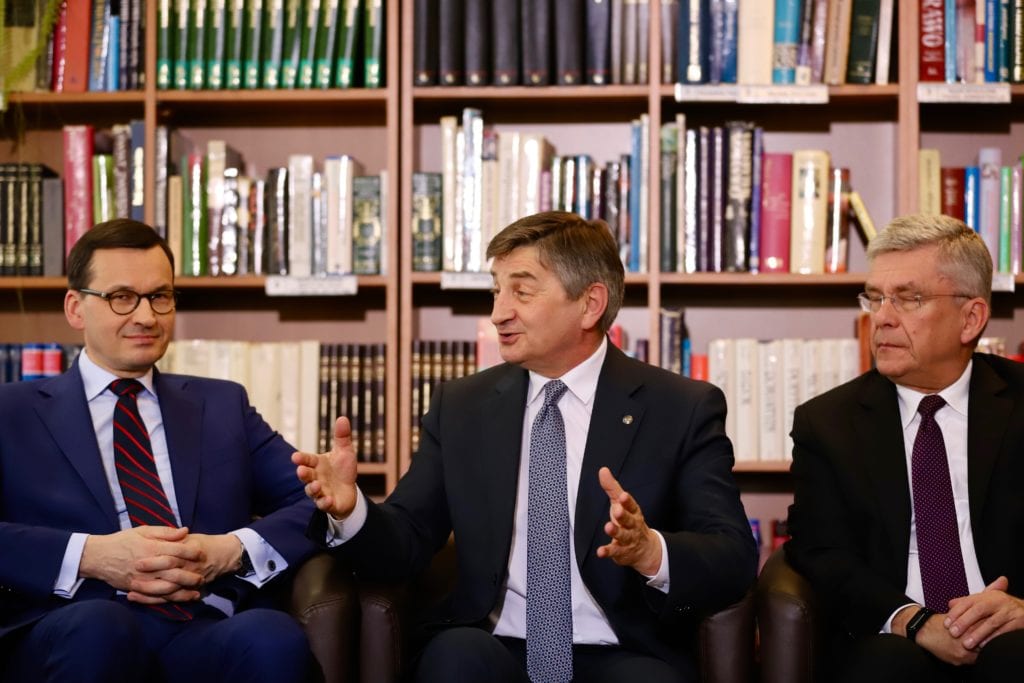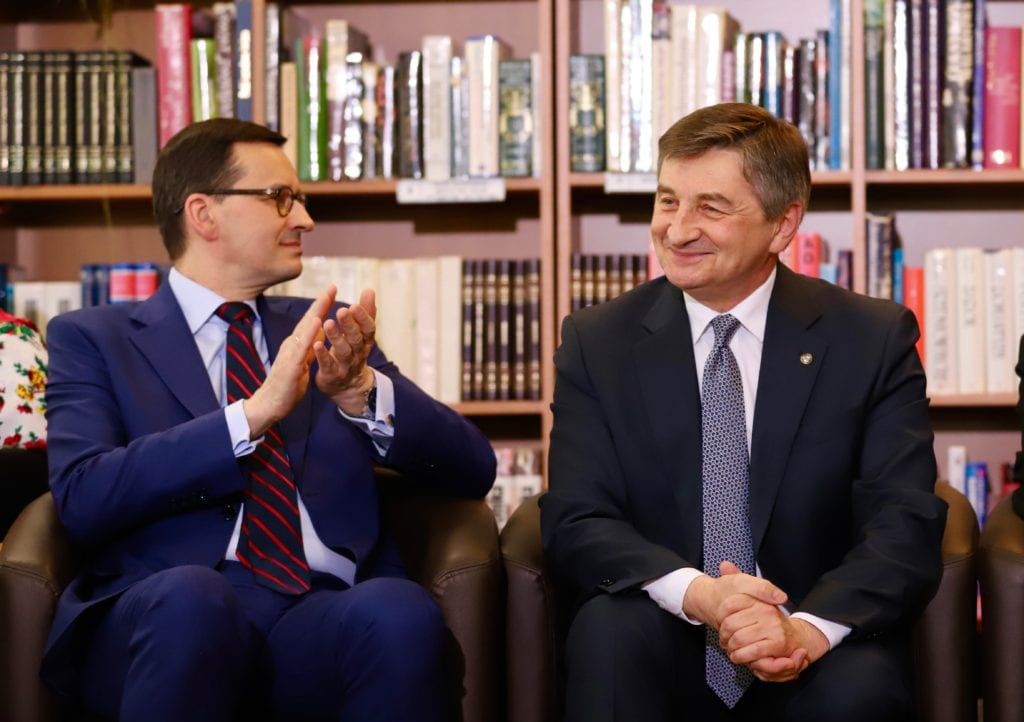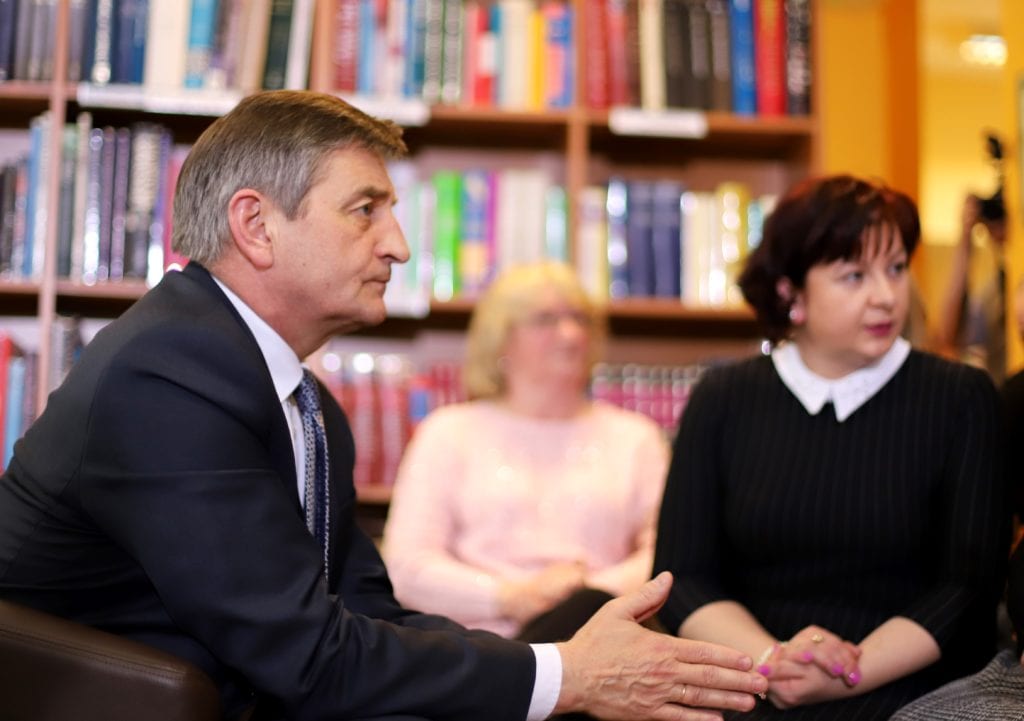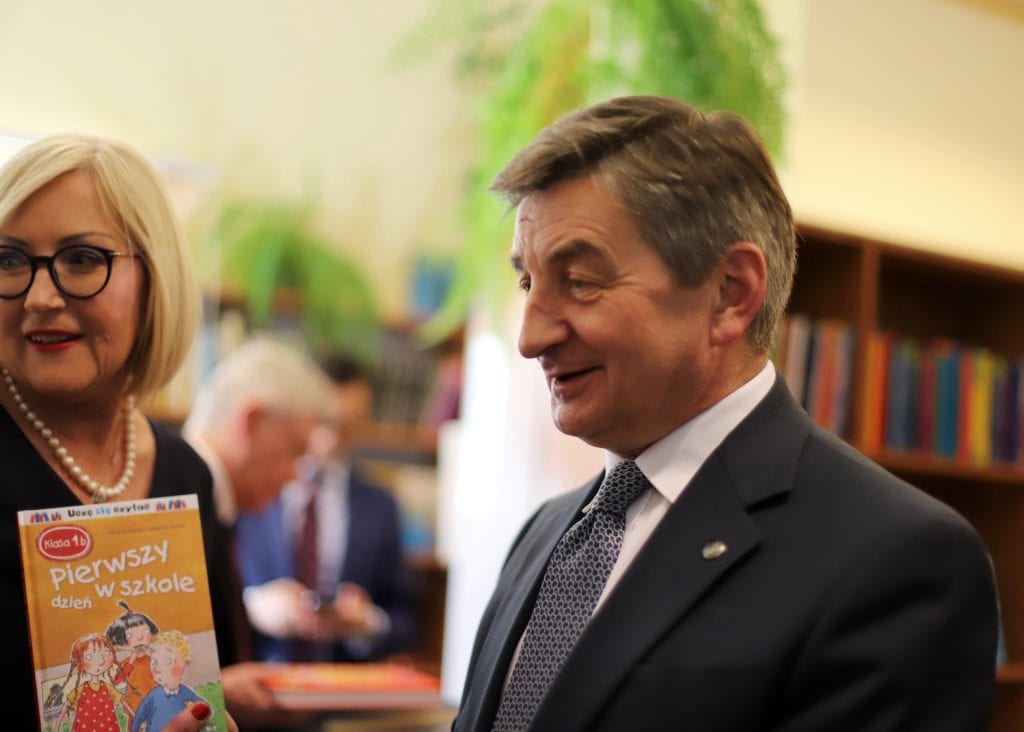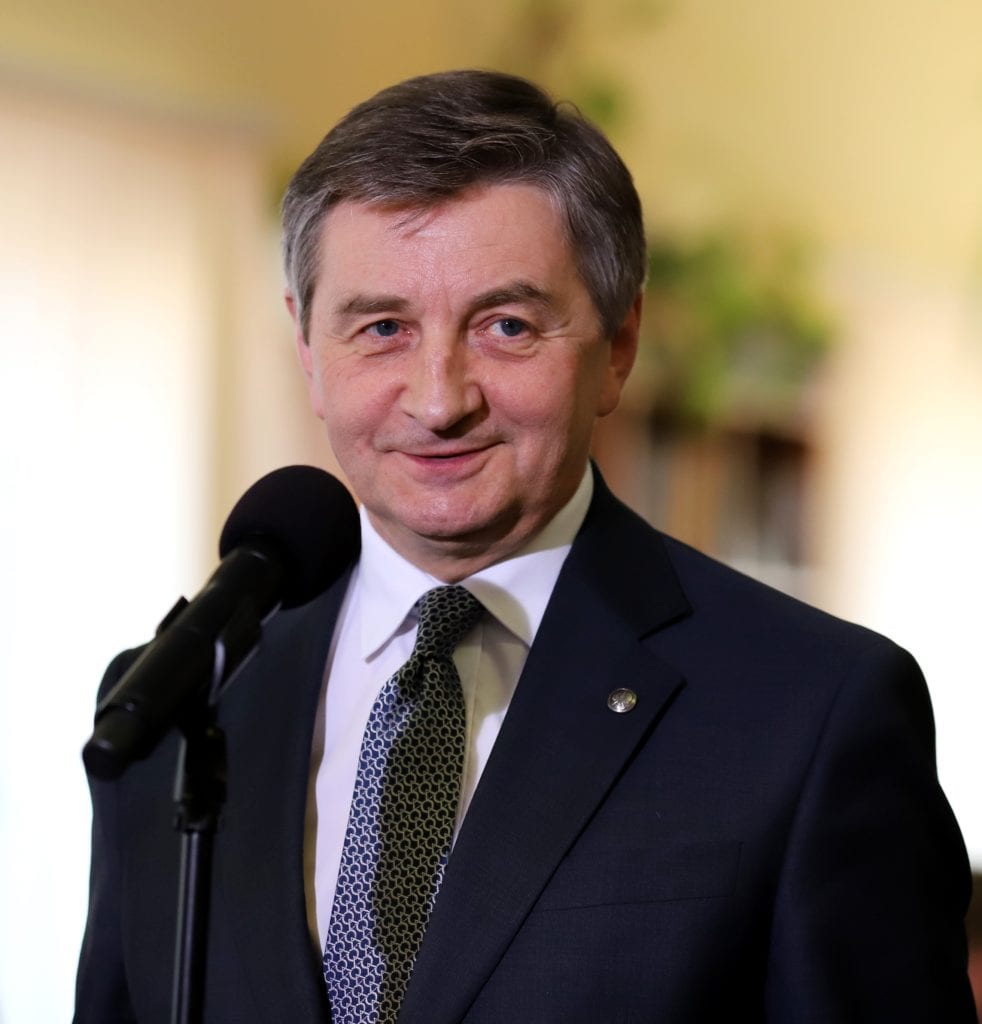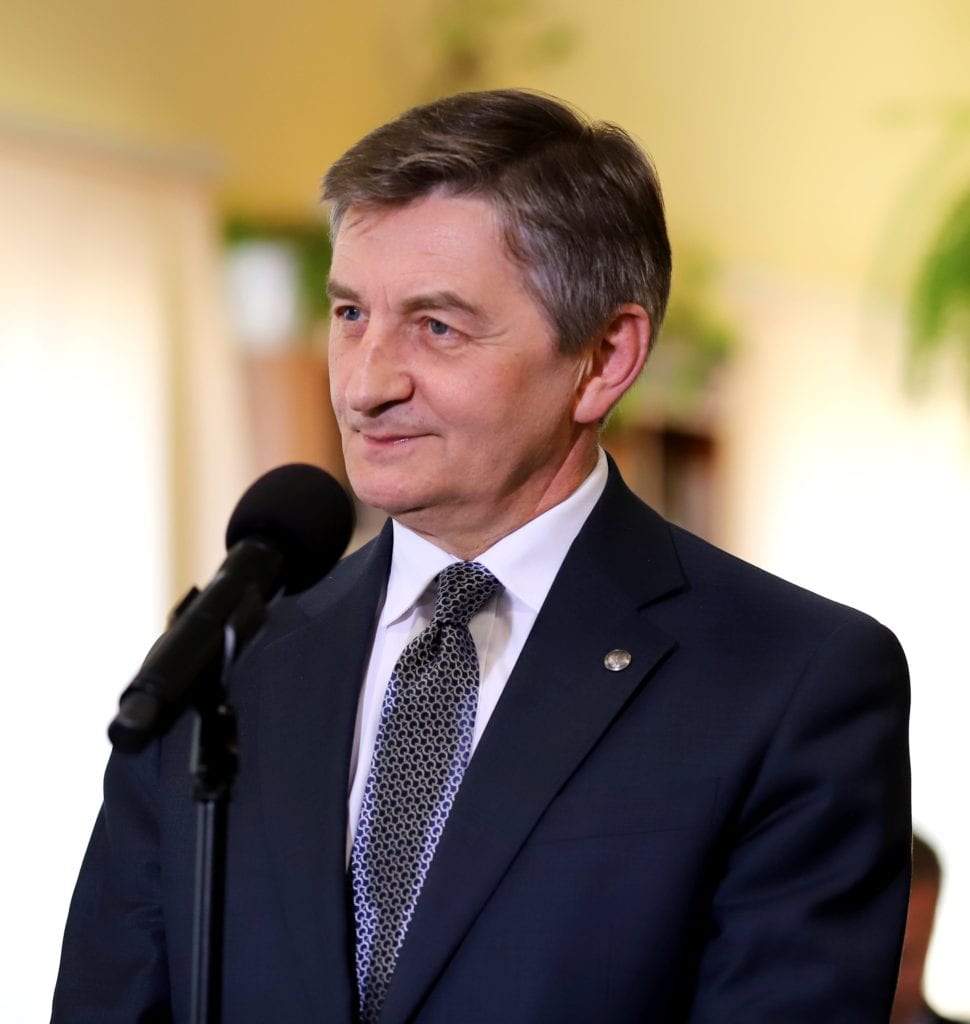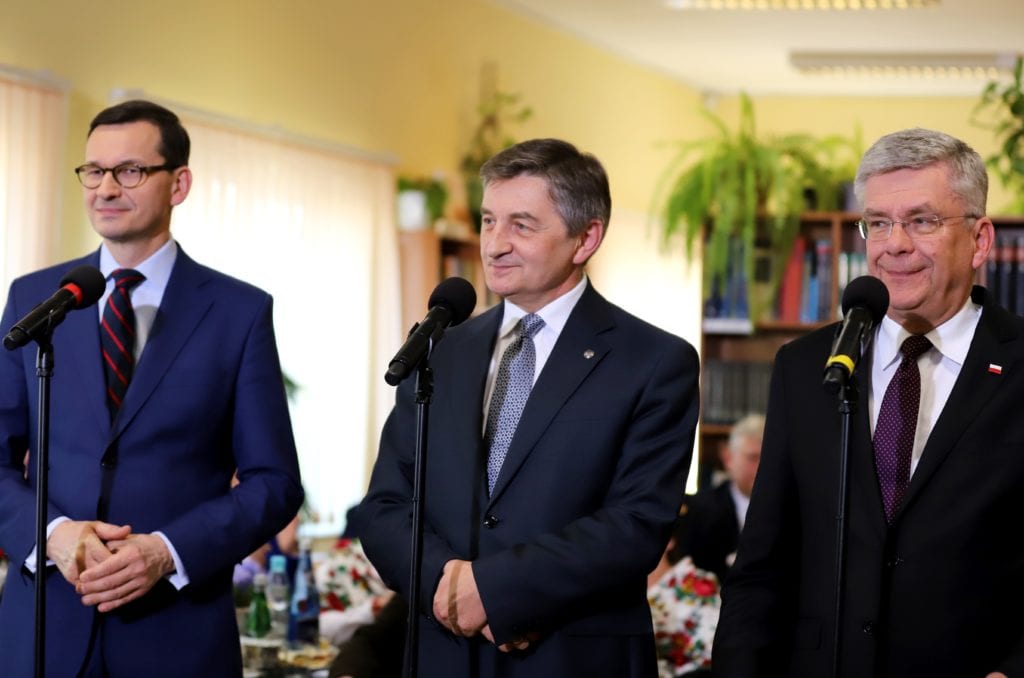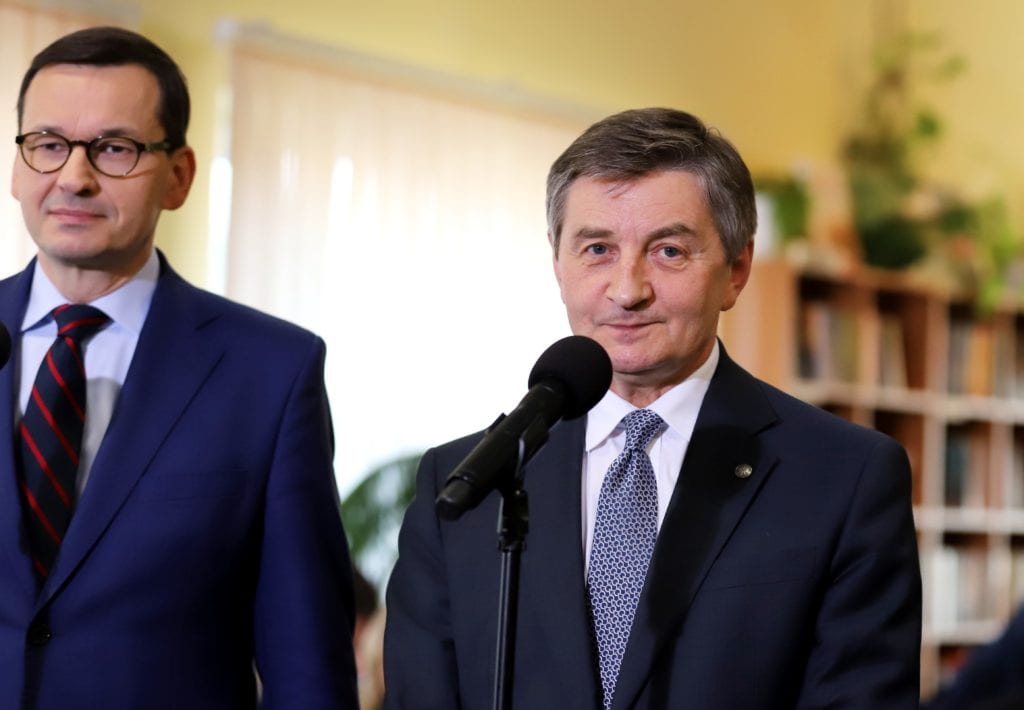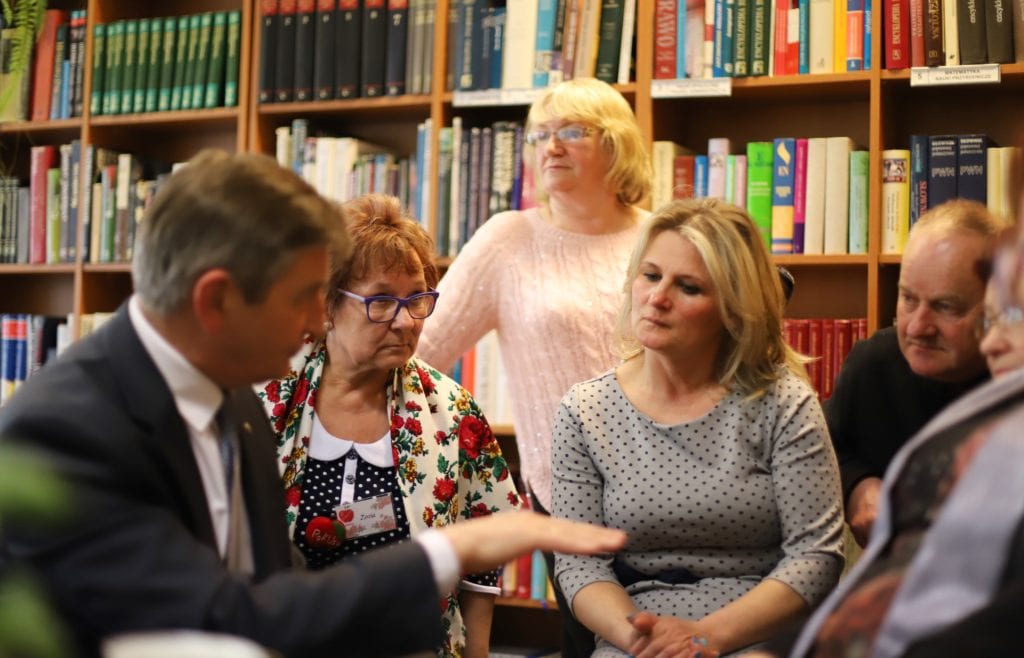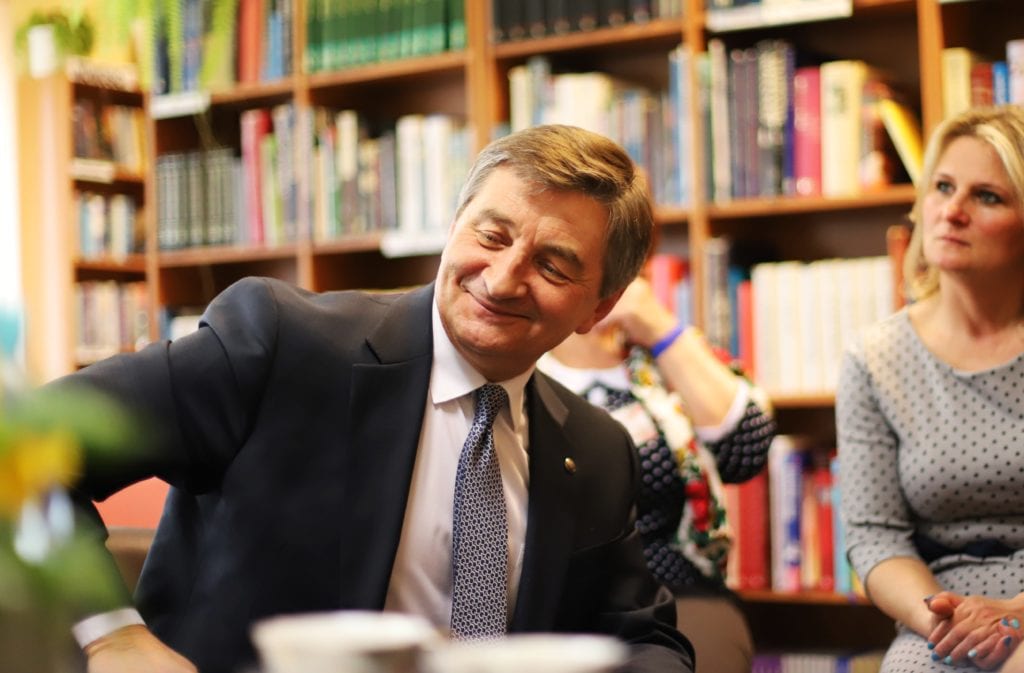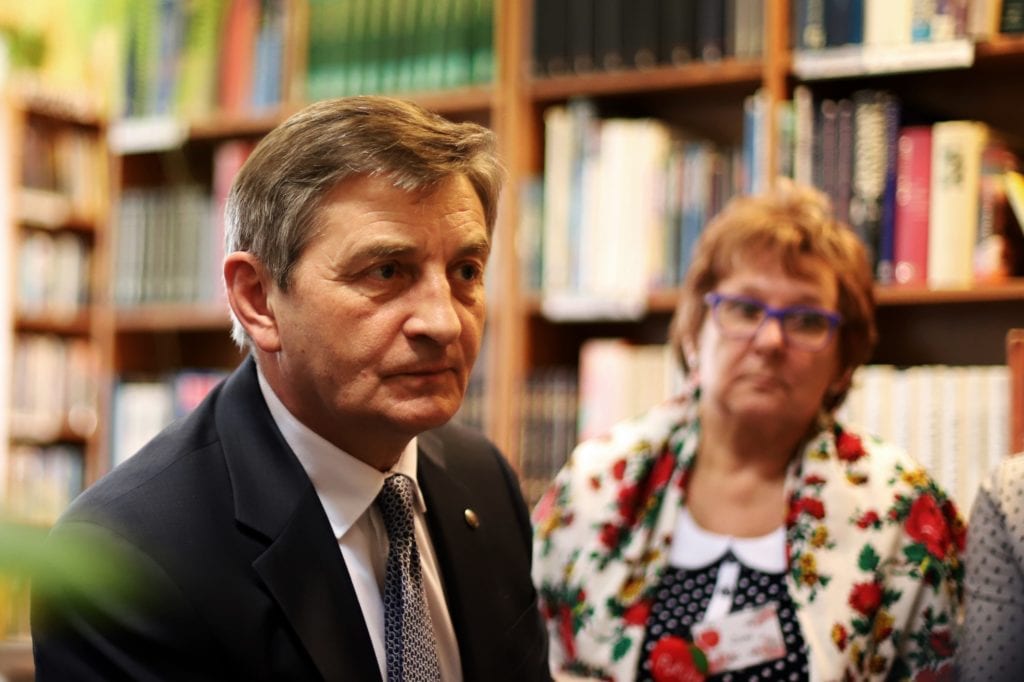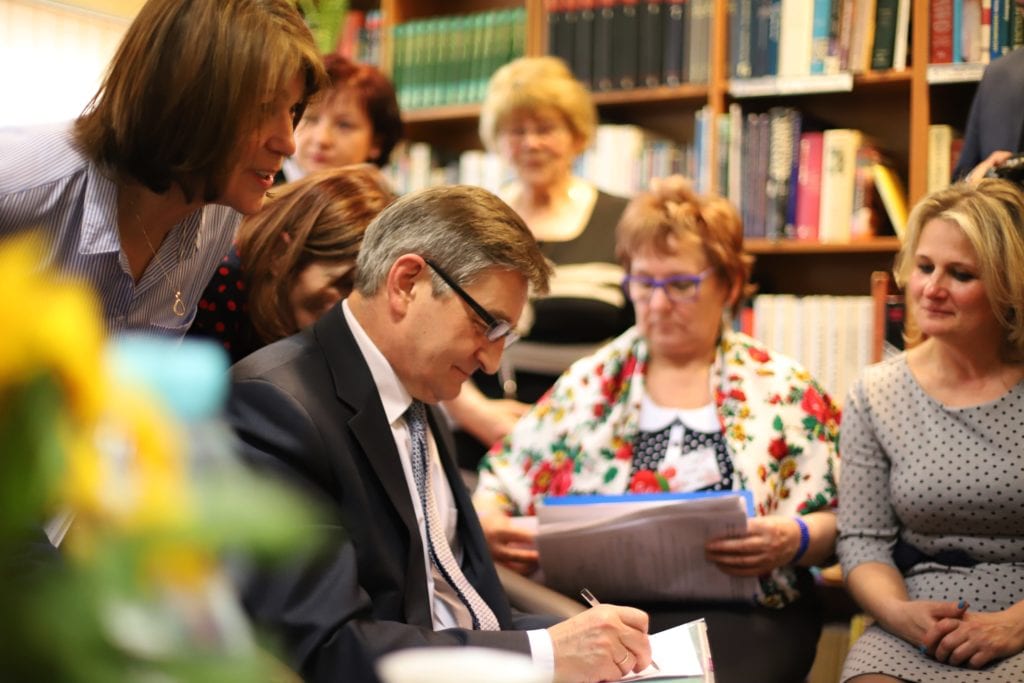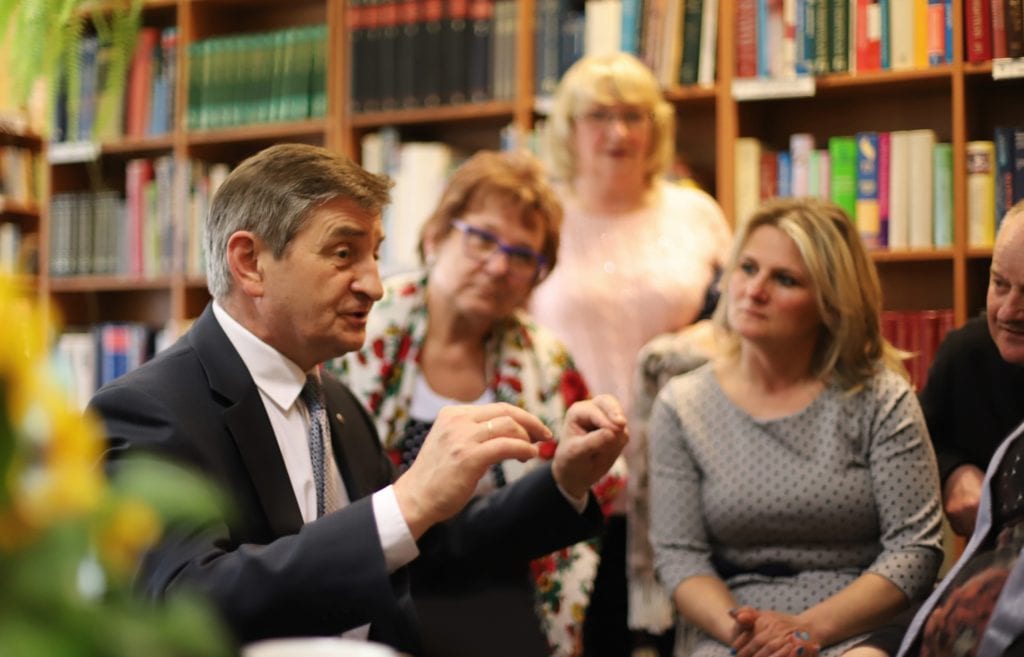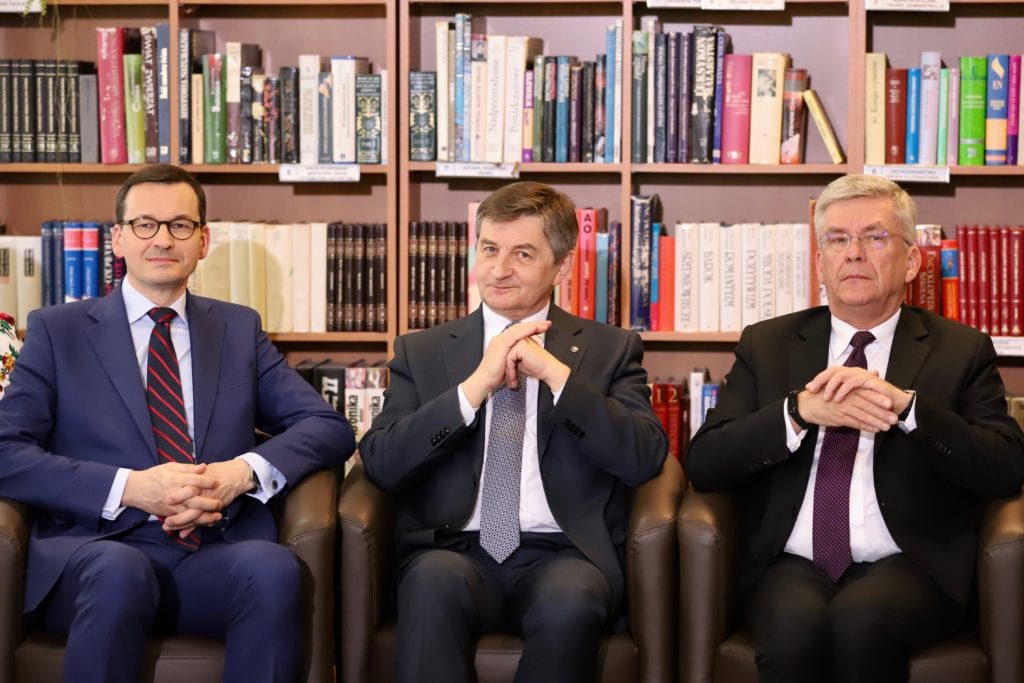At its 79th session, the Sejm passed the "Emerytura plus" bill. The benefit addressed to pensioners and disability pensioners consists in a single payment of the thirteenth pension in the amount of 1100 PLN gross (888.25 PLN net).
In the explanatory memorandum to the law, the Ministry of the Family explains that the purpose of the one-off cash benefit, in addition to helping pensioners, is specifically to reduce wealth disparities in society. Although many changes have been made in recent years to protect the level of pension benefits, this assistance is still considered insufficient. The 13th pension will go to more than 9.8 million seniors, including nearly 7 million pensioners and more than 2.5 million disability pensioners.
A few dozen minutes after the bill was passed by the Parliament, the Speaker of the Sejm, accompanied by the Speaker of the Senate and the Prime Minister met with the seniors from Jasieniec. Marek Kuchciński said that PiS keeps its word, thinks about the present as well as the future generations.
- Thirteen is a tribute to our fathers, grandfathers, the generations that raised us for today's functions and responsibilities. We are looking for a recipe to support those who need it most. Lech Kaczynski said many years ago that he envisions solidarity as the ability to share. Until now, elderly people living in different parts of Poland had no support. Law and Justice Law is addressing this long-standing backlog - Kuchciński emphasized.
The elderly are a group in particular need of state assistance. The Ministry of Family Affairs, taking into account demographic changes in Polish society, has been consistently implementing senior citizen policy, introducing programs to support and develop seniors, such as:
Restore Retirement age: 60 years for women, 65 for men
The law only specifies the minimum age at which you can exercise the right to an old-age pension. It enables each insured person to make decide on their own when they stop working
The "Medicines 75 Plus" project, i.e. free medicines for seniors over 75 years of age
- 2.2 million seniors have already benefited of free drugs
- 564 million PLN for the implementation of project in 2017
- 40 million packages of free medicines dispensed for seniors
- 15 million completed prescriptions with an eligibility code "S"
- 1530 items on the list of drugs 75 plus
Multiannual Programme "Senior Plus" for the years 2015 - 2020
The program is addressed to local government units local government units. Its objective is to increase active participation social life of seniors through development of a network of "Senior+" Day Care Centers and "Senior+" Clubs. "Senior+"
"Accessibility Plus" Program
23 billion PLN was earmarked for, among other things removal of architectural barriers. The aim of the project is to improve living conditions living conditions of elderly, frail and disabled persons
Pension valorization
The lowest benefits will be raised to to PLN 1100 (from PLN 1029.80) and PLN 825 (in the case of the lowest partial disability benefit), respectively. partial inability to work)
Old-age and disability pensions paid out by the Social Insurance Institution (ZUS) will increase by the index of valorization - 2.86%, but not less than PLN 70.
Reinstatement of PKS
The law restoring the bus service will come into force at the turn of April/May this year. Local governments will have to actively participate in its implementation local governments.
The fight against transport exclusion will be carried out in two ways: Through the Road Fund and the restoration of transport links where they eliminated due to lack of profitability.
"Social Policy for the Elderly 2030".
Adopted by the Council of Ministers on 26 October 2018, document predicts:
- Shaping a positive perception of old age in society.
- Participate in community life and support all forms of civic, social, cultural, artistic, sporting and religious activities.
- Creating conditions that make it possible to use the potential of older people as active participants in economic life and the labor market, adapted to their psychophysical capabilities and family situation.
- Health promotion, disease prevention, access to diagnosis, treatment and rehabilitation.
- Increasing physical safety - addressing elder abuse and neglect.
- Creating conditions for intergenerational solidarity and integration.
- Actions for education for old age (care and medical personnel), to old age (whole society), through old age (from the youngest generation) and education in old age (elderly people).
- Reduce the extent of dependence on others by facilitating access to services that enhance independence and adapting the residential environment to the functional capabilities of dependent older adults.
- Ensure optimal access to health, rehabilitation, and care services tailored to the needs of dependent older adults.
- A network of community and institutional services provided to dependent older adults.
- The system of support of informal caregivers of dependent elderly people by public institutions.
text/ photo Marta Olejnik
